
Copernical Team
Earth isn't 'super' because the Sun had rings before planets
 Before the solar system had planets, the sun had rings - bands of dust and gas similar to Saturn's rings - that likely played a role in Earth's formation, according to a new study. "In the solar system, something happened to prevent the Earth from growing to become a much larger type of terrestrial planet called a super-Earth ," said Rice University astrophysicist Andre Izidoro, referring to the
Before the solar system had planets, the sun had rings - bands of dust and gas similar to Saturn's rings - that likely played a role in Earth's formation, according to a new study. "In the solar system, something happened to prevent the Earth from growing to become a much larger type of terrestrial planet called a super-Earth ," said Rice University astrophysicist Andre Izidoro, referring to the NASA releases autonomous flight termination unit software to industry
 NASA has provided an advance release of its NASA Autonomous Flight Termination Unit (NAFTU) software code to the launch industry, a critical milestone toward the final certification of NAFTU, which is on-track for February 2022.
NAFTU is a game-changing command and control system available to launch vehicle providers for use at all U.S. launch ranges in ensuring public safety during launch
NASA has provided an advance release of its NASA Autonomous Flight Termination Unit (NAFTU) software code to the launch industry, a critical milestone toward the final certification of NAFTU, which is on-track for February 2022.
NAFTU is a game-changing command and control system available to launch vehicle providers for use at all U.S. launch ranges in ensuring public safety during launch New Year’s science in space for a healthier life
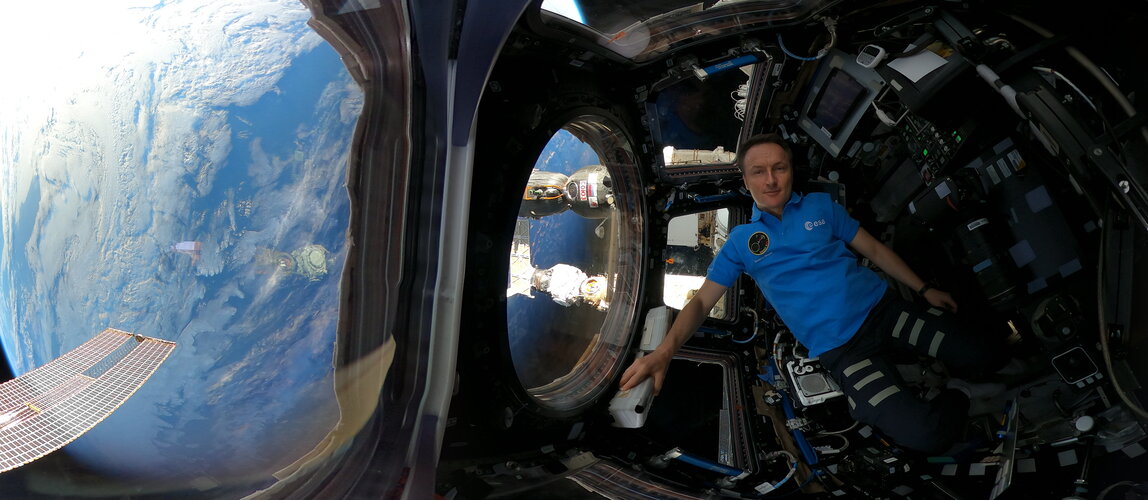
Another year passes, and our muscles, bones, eyes and ears deteriorate as we age – even more so in space. Reactions in ESA astronaut Matthias Maurer’s body after barely two months on the International Space Station are giving European scientists clues on how to fight the downsides of growing old on Earth.
Webb telescope deploys flap that will keep it oriented during its mission
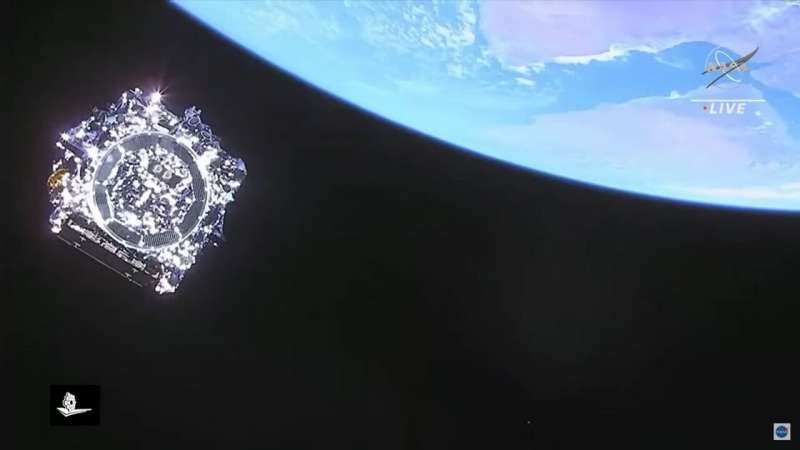
On December 25, 2021, astronomers and space exploration enthusiasts got the greatest Christmas present of all—after years of delays, cost overruns and additional testing, the James Webb Space Telescope (JWST) launched from Europe's Spaceport in Kourou, French Guiana. In a real nail-biter, the Ariane 5 rocket and its precious payload reached orbit without a hitch. But as is so often the case, the deployment of the JWST was just the first in a series of "hurry-up-and-wait" episodes.
Typically, periods of waiting are accompanied by plenty of worry and doubt. Luckily, there have been several positive developments since the JWST launched that could alleviate these anxieties. The latest is that the telescope successfully deployed its aft momentum flap, an instrument that will keep the telescope oriented during its mission. The news was announced yesterday (December 30) via @NASAWebb, NASA's official Twitter account for the Webb telescope, and the JWST page at NASA Blogs.
According to NASA Blogs, the deployment of the aft momentum flap began at 09:00 AM EST (06:00 AM PST) and lasted about eight minutes. During this time, the mission team released the flap's hold-down devices while a spring brought the flap into its final position.
Webb launch campaign highlights
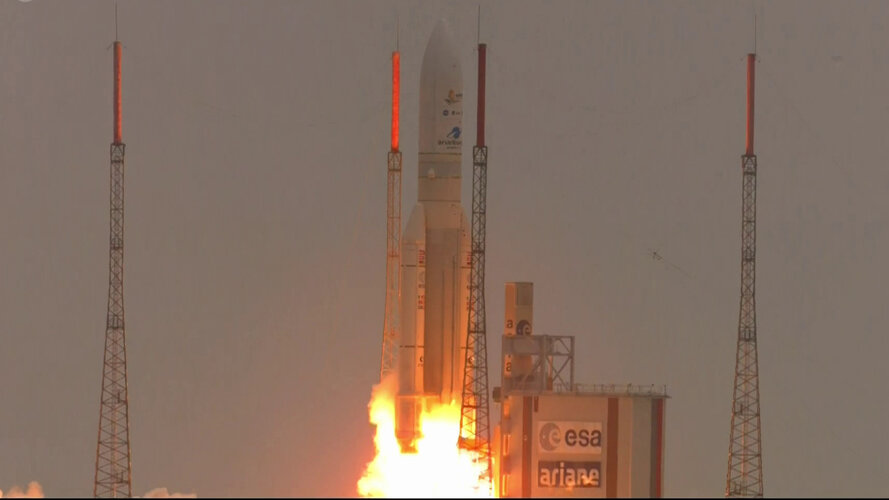 Video:
00:01:51
Video:
00:01:51
Highlights of the launch campaign for the James Webb Space Telescope, from its arrival at Europe’s Spaceport in Kourou, French Guiana, weeks of launch preparations, to launch on board an Ariane 5, and separation of the spacecraft and solar panel deployment.
Now in space and on its way to L2, Webb will undergo a complex unfolding sequence. In the months after, the instruments will be turned on and their capabilities tested. After half a year in space, Webb will start its routine science observations.
Webb will see farther into our origins: from the Universe's first galaxies, to the birth
2029 will be the perfect year to launch a mission to Sedna
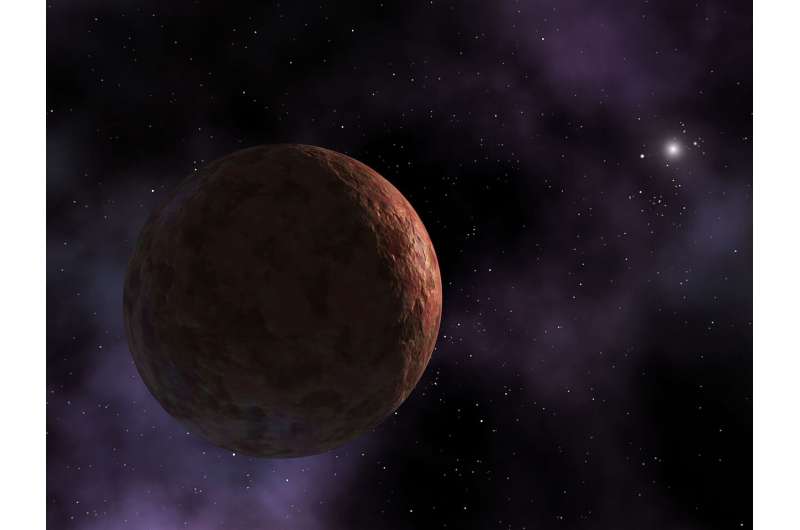
Object 90377 Sedna—a distant trans-Neptunian object known best for its highly elliptical, 11,390-year long orbit—is currently on its way toward perihelion (its closest approach to the sun) in 2076. After that, Sedna will swing out into deep space again and won't be back for millennia, making this flyby a once-in-a-lifetime (or, once in ~113 lifetimes) opportunity to study an object from the far reaches of our solar system. There are no missions to Sedna in the works just yet, but astronomers are beginning to plan for the possibility, and the ideal launch date for such a mission is approaching fast, with two of the best launch windows coming up in 2029 and 2034.
Sedna was discovered in 2003 by Caltech astronomer Mike Brown and his team, and was one of a series of potential dwarf planets (alongside similar-sized bodies like Haumea, Makemake, and Eris) whose discovery led to the demotion of Pluto in 2006. As best we can tell from a distance, Sedna is about the same size as Ceres, the largest object in the asteroid belt, but its composition and origins are different.
Webb sunshield fully deployed
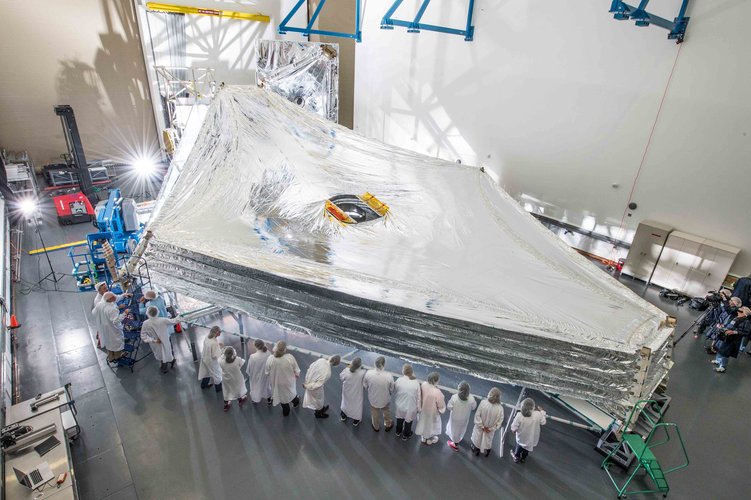
The NASA/ESA/CSA James Webb Space Telescope team has fully deployed the spacecraft’s sunshield in space, a key milestone in preparing it for science operations.
Kerstin Perez is searching the cosmos for signs of dark matter
 Kerstin Perez is searching for imprints of dark matter. The invisible substance embodies 84 percent of the matter in the universe and is thought to be a powerful cosmic glue, keeping whole galaxies from spinning apart. And yet, the particles themselves leave barely a trace on ordinary matter, thwarting all efforts at detection thus far.
Perez, a particle physicist at MIT, is hoping that a
Kerstin Perez is searching for imprints of dark matter. The invisible substance embodies 84 percent of the matter in the universe and is thought to be a powerful cosmic glue, keeping whole galaxies from spinning apart. And yet, the particles themselves leave barely a trace on ordinary matter, thwarting all efforts at detection thus far.
Perez, a particle physicist at MIT, is hoping that a The mysterious dusty object orbiting TIC 400799224
 The Transiting Exoplanet Survey Satellite, TESS, was launched in 2018 with the goal of discovering small planets around the Sun's nearest neighbor stars. TESS has so far discovered 172 confirmed exoplanets and compiled a list of 4703 candidate exoplanets. Its sensitive camera takes images that span a huge field of view, more than twice the area of the constellation of Orion, and TESS has also as
The Transiting Exoplanet Survey Satellite, TESS, was launched in 2018 with the goal of discovering small planets around the Sun's nearest neighbor stars. TESS has so far discovered 172 confirmed exoplanets and compiled a list of 4703 candidate exoplanets. Its sensitive camera takes images that span a huge field of view, more than twice the area of the constellation of Orion, and TESS has also as Asteroid 'Apophis' predicted to skim dangerously close to Earth in 2029
 Earlier, NASA said that Apophis - the poster child for "hazardous asteroids" - was no longer deemed a threat for Earth based on a refined estimate of its orbit around the Sun.
Asteroid 99942 Apophis, estimated to measure 340 metres (1,100 ft) across and identified by the National Aeronautics and Space Administration (NASA) as one of the most hazardous asteroids that could impact Earth, wil
Earlier, NASA said that Apophis - the poster child for "hazardous asteroids" - was no longer deemed a threat for Earth based on a refined estimate of its orbit around the Sun.
Asteroid 99942 Apophis, estimated to measure 340 metres (1,100 ft) across and identified by the National Aeronautics and Space Administration (NASA) as one of the most hazardous asteroids that could impact Earth, wil 
